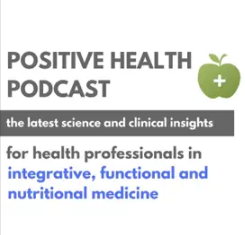
Immune Related Sub-fertility
April 5, 2025
Long Covid Advocacy Ireland – Gut Health Webinar
April 14, 2025Bacterial Vaginosis and Fertility

Bacterial Vaginosis (BV) is the most common vaginal tract condition in women, it can occur at any age, but mostly in reproductive years. It develops when the normal balance in healthy vaginal microbiome (Lactobacillus species) is disrupted leading to a proliferation of unhealthy bacteria. Symptoms range from a strong fishy vaginal odour, burning during urination and pain during sex to a grey or green discharge causing discomfort.
Importantly, many people with bacterial vaginosis have no symptoms. This can be an unidentified cause for unexplained infertility, implantation failures or recurrent miscarriage.
How Does BV Develop?
The vaginal microbiome is a dynamic ecosystem that also undergoes monthly changes due to hormonal fluctuations and menstrual phases which can have an impact on microbiome, pH and fertility. If there is a reduction in levels of Lactobacilli this can lead to reduced pH and an increase in opportunistic bacteria.
BV develops due to prolonged decrease in production of lactic acid in the vagina. Lactic acid-producing bacteria help maintain a healthy vaginal pH of around 4.5. This acidic environment prevents the growth and proliferation of bacteria that cause BV, such as Gardnerella vaginalis and Atopobium vaginae.
How BV can impact pregnancy
BV is linked with a two-fold increase in the risk of very early pregnancy loss (chemical pregnancy) following IVF. If present during pregnancy, BV may also raise the risk of miscarriage, preterm birth, low birth weight, and postpartum infections1.
The impact of BV on egg and sperm activity
It is estimated the incidence of BV is 3 times more likely in women with fertility issues. BV can reduce fertility in several ways:
- Increasing inflammatory response and immune system activation, making for an in-hospitable environment for reproduction
- Causing damage to sperm and vaginal tissues
- Disrupting the production of healthy cervical mucus that assists motility and acts as a barrier for microbial invasion
- Infections cause scarring and blockages in the fallopian tubes, which prevent the egg and sperm from fertilisation
In recent years, studies began looking at the influence of the vaginal microbiome on reproductive outcomes, offering insights into its composition and role in conception and fertility2.
Breaking the cycle
Breaking the cycle of bacterial imbalance can be done by firstly testing to assess the vaginal microbiome. Then we can implementing a protocol to restore the microbiome balance by promoting Lactobacillus dominance and restoring the acidic pH. When the vaginal microbiome balance is restored, this allows Lactobacilli to thrive and dominate, and to stop the vicious cycle of BV.
Testing the vaginal microbiome
A great way to start is to do a vaginal microbiome test to assess your overall microbiome status. This analyses the microbiota balance of both the healthy and opportunistic bacteria, along with markers of inflammation and pH.
Once you know the results of your test, we can work towards building a healthy Lactobacilli colony. This can be done through…
- A diet rich in fibre, fruits, and vegetables that supports microbial health. Eating a diet rich in bright-coloured fruit and vegetables that contain polyphenols and specific prebiotic foods that feed Lactobacilli and help it to grow and flourish
- Stress management – Lifestyle significantly impacts the microbiome, reducing stress such as regular exercise, mindfulness and meditation
- Avoiding excessive antibiotics and maintaining good hygiene
References
- Bacterial vaginosis and its association with infertility, endometritis, and pelvic inflammatory disease – American Journal of Obstetrics & Gynecology
- The vaginal microbiome as a predictor for outcome of in vitro fertilization with or without intracytoplasmic sperm injection: a prospective study – PubMed


